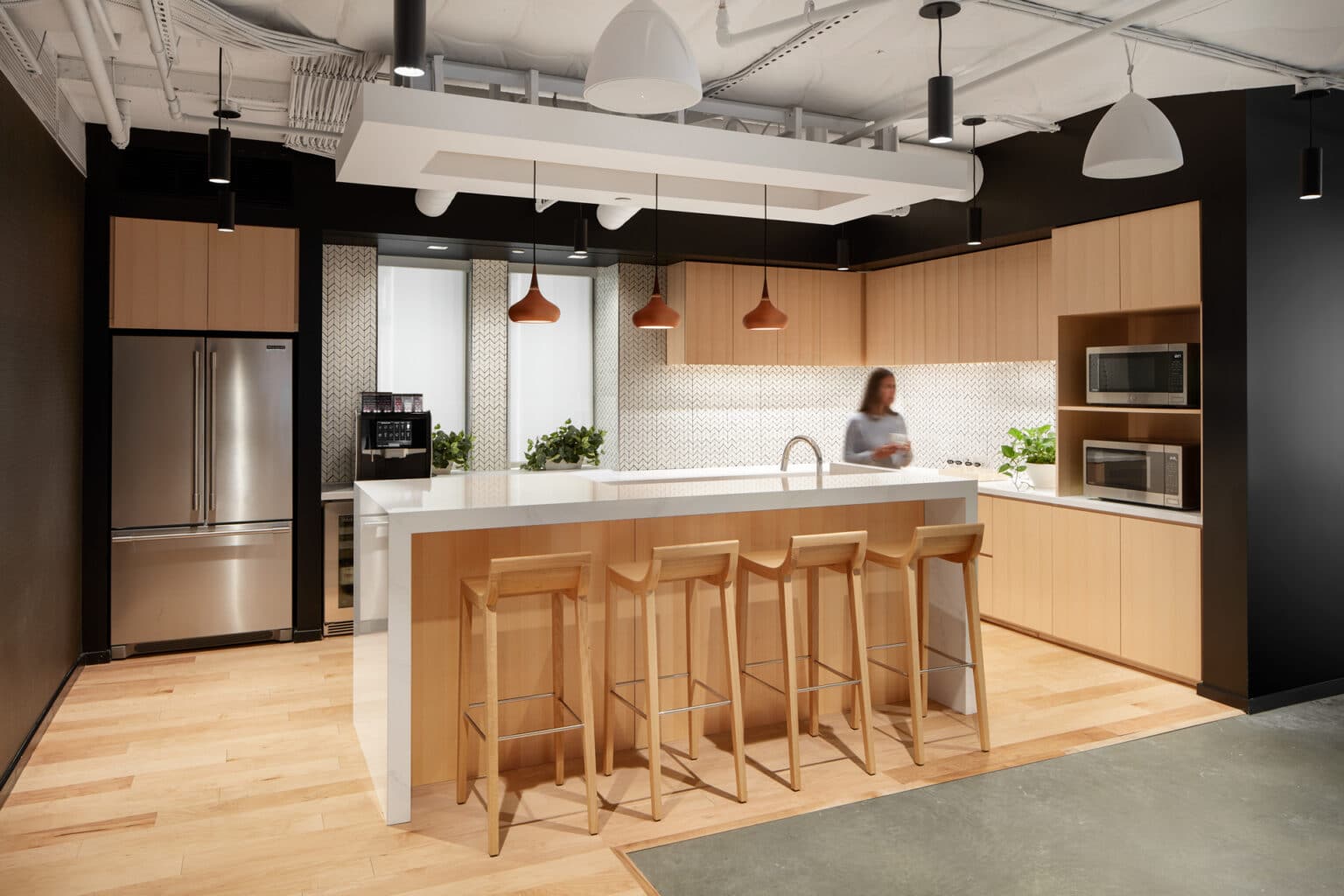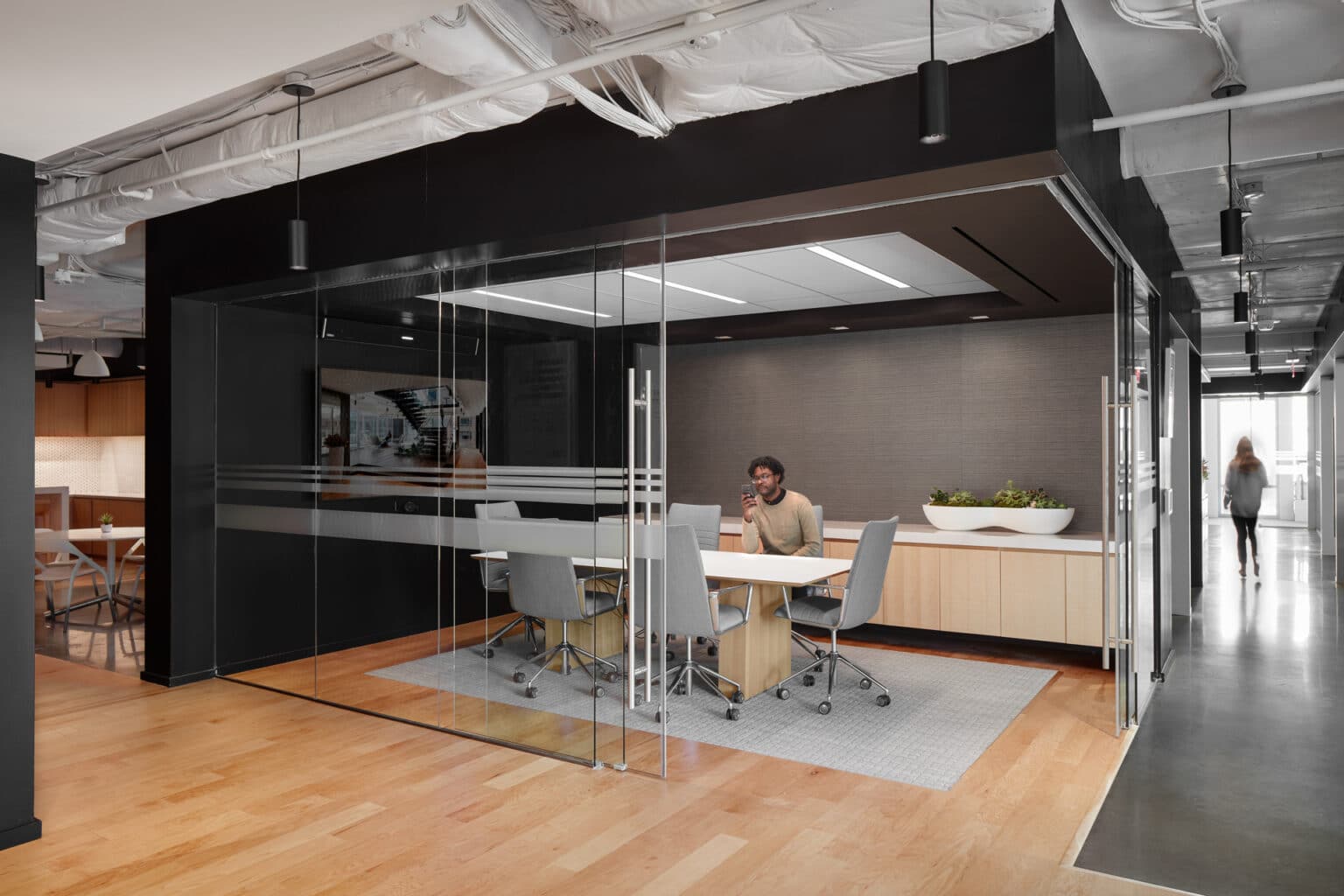

Distributed over the two-levels, the DC office doubles as a Entertaining/Conferencing Center for the San Francisco-based company. JUUL, founded by discerning product designers were pleased with us achieving the design aesthetics reflective of the firm’s native city and artfully marrying it with the DC setting. As a result, we created a casual laid back environment with a dressy, dramatic and glamorous edge to it.
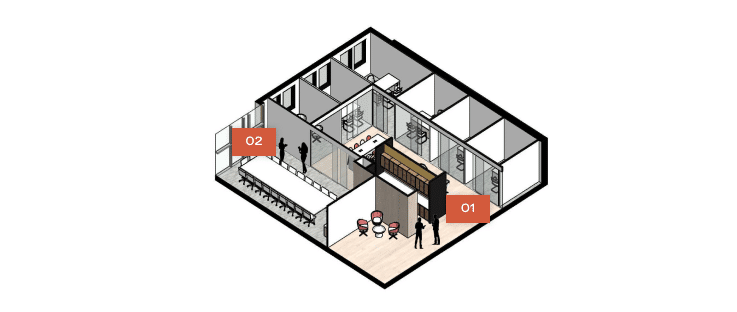
The double sided pantry creates the main circulation path in the suite, and it divides the touchdown and conference spaces from the private offices.
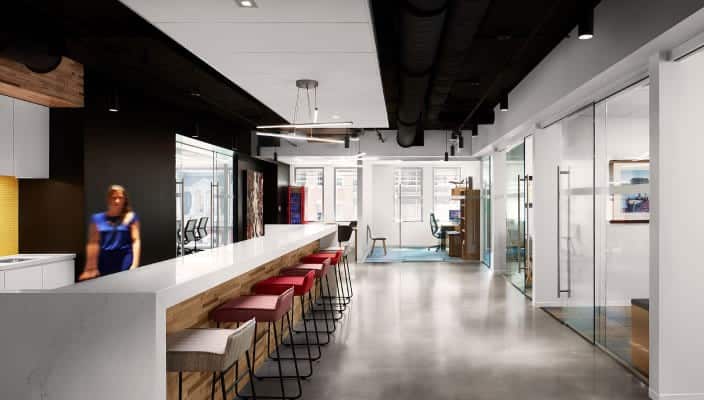
The executive conference room meets the tenants need for a formal meeting space, and takes advantage of the city views and daylighting.
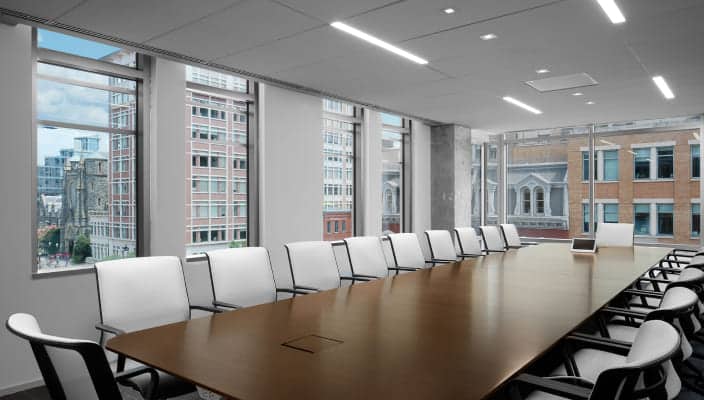
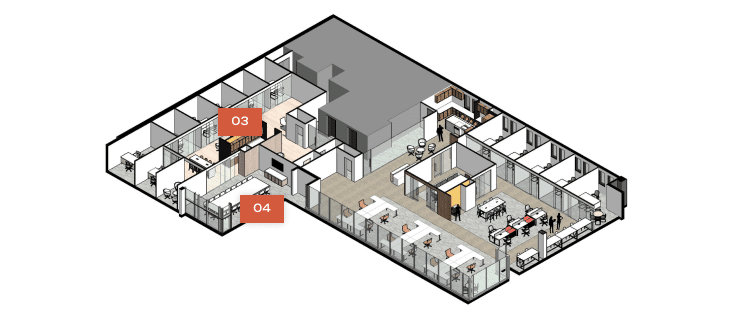
The community pantry reflects the culture and personality of the tenant, and provides users with a space to socialize and recharge.
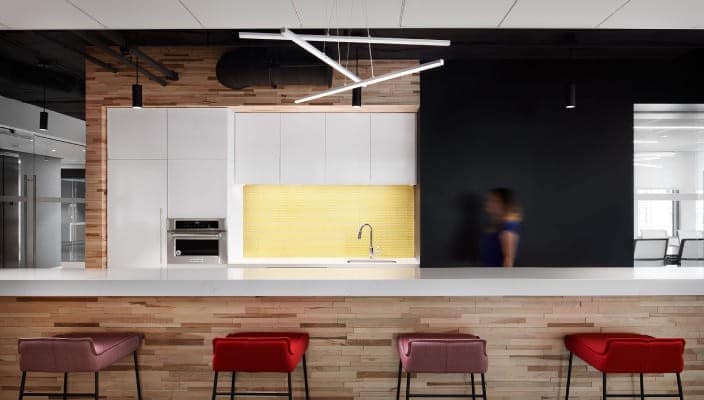
Embracing and highlighting architectural features of the building, rather than hiding them, creates design details unique to the suite.
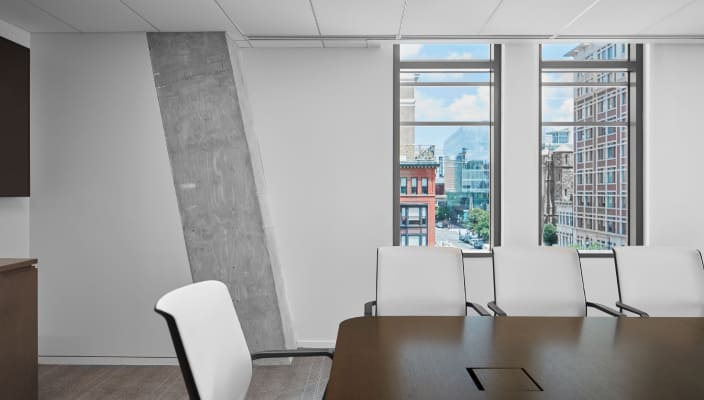
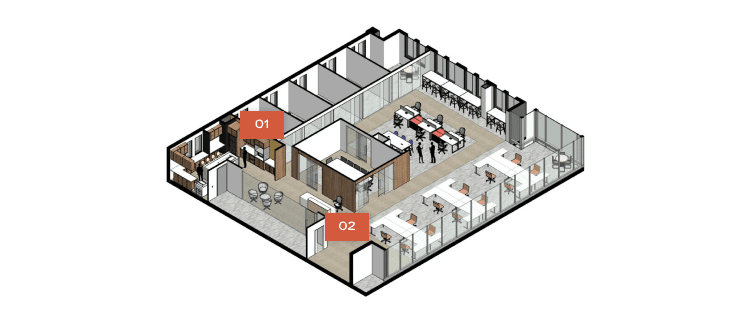
A pantry in each suite creates a space for social interaction and respite for users. Variations in layout and finishes create a unique space for each suite.
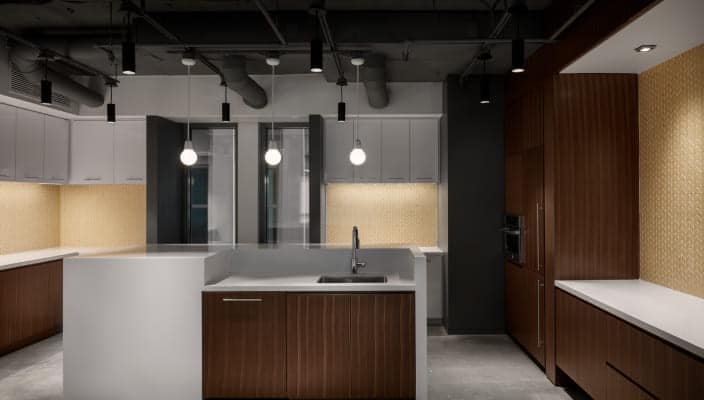
The reception area welcomes users and visitors to the suite. It provides a point of connection between the social area of the pantry and main workspace. The elements of the exposed ceiling are used to enhance the visual linearity of the space.
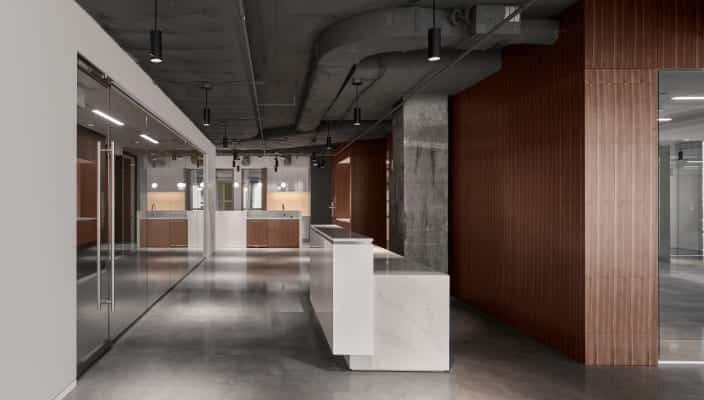
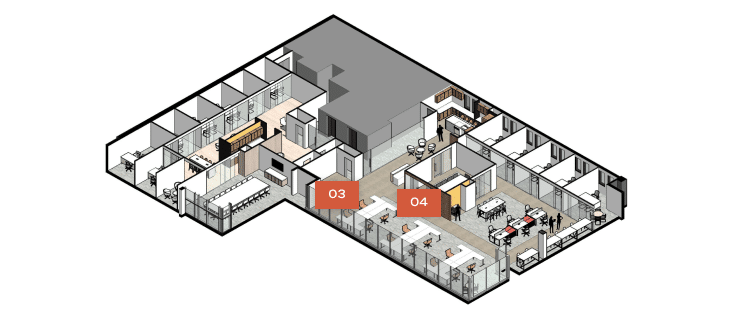
Taking advantage of daylighting and views, the open space provides flexibility for different work areas and functions.
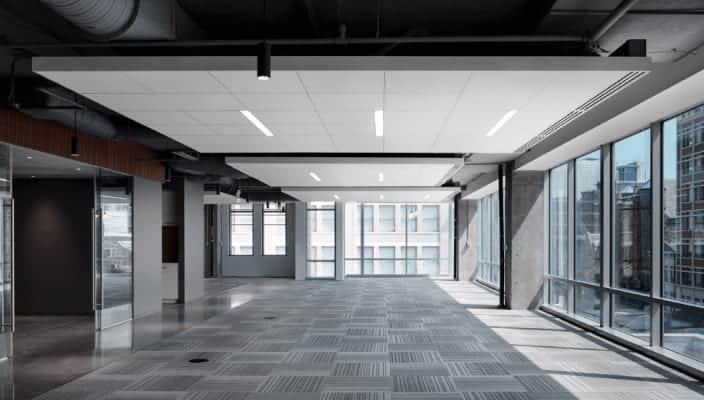
A centrally located conference room is easily accessible from all areas of suite. This concept is carried throughout the layouts on different floors.
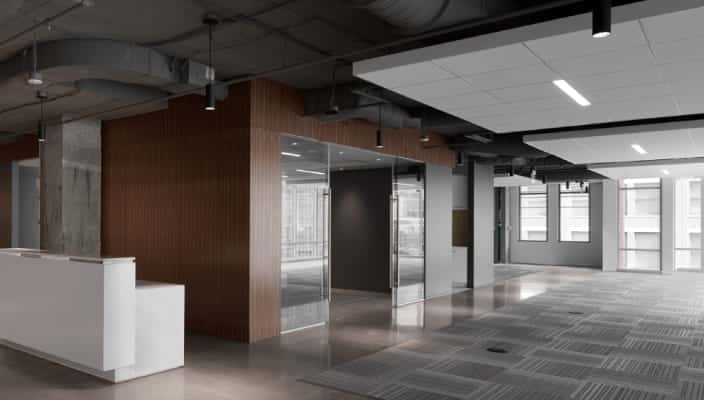
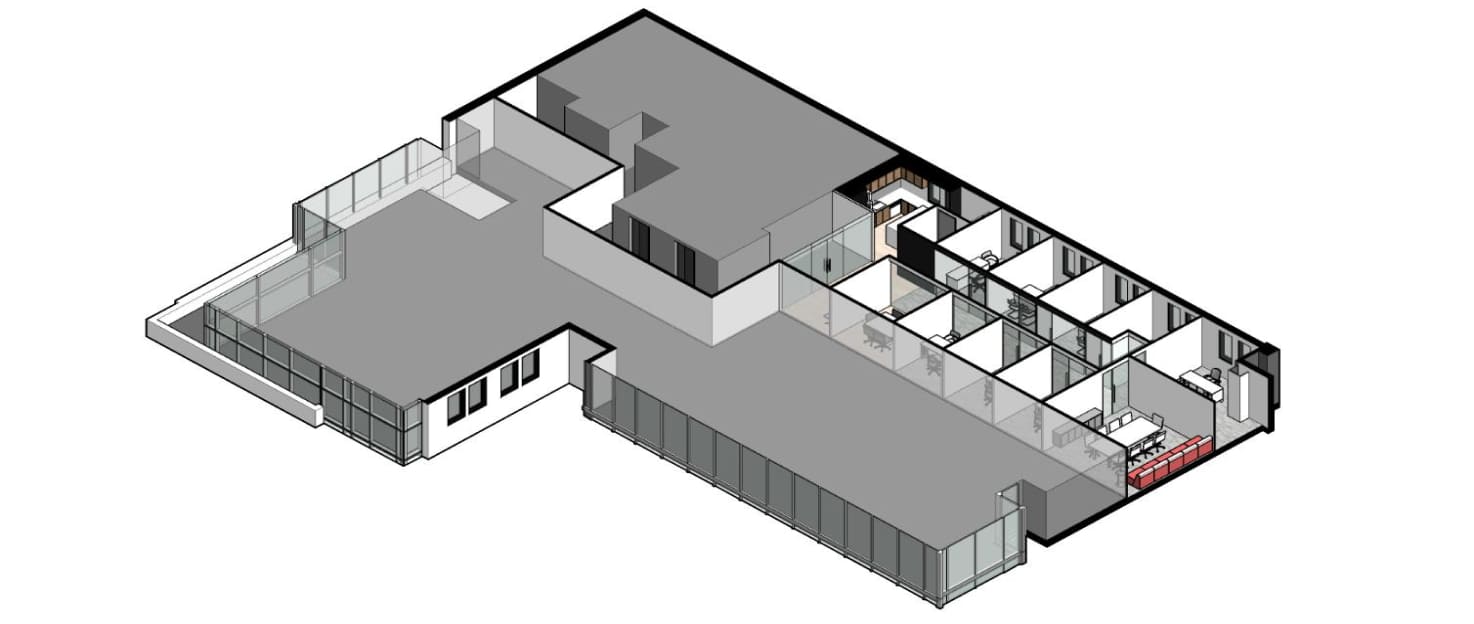
Proceeding marketability assessment and building code analysis, KGD produced a series of typical floor blocking plan diagrams to determine options for full floor and multitenant suites. The intent was to define and provide the landlord with a flexible guide to accommodate a range of special requirements for any prospective tenants.
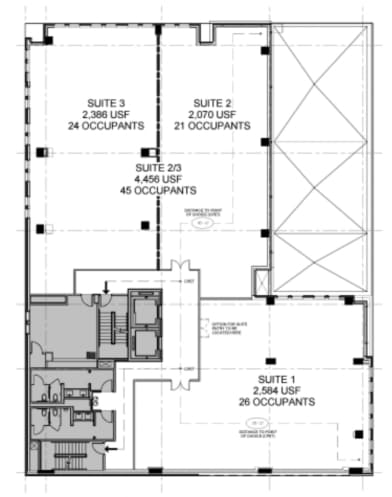
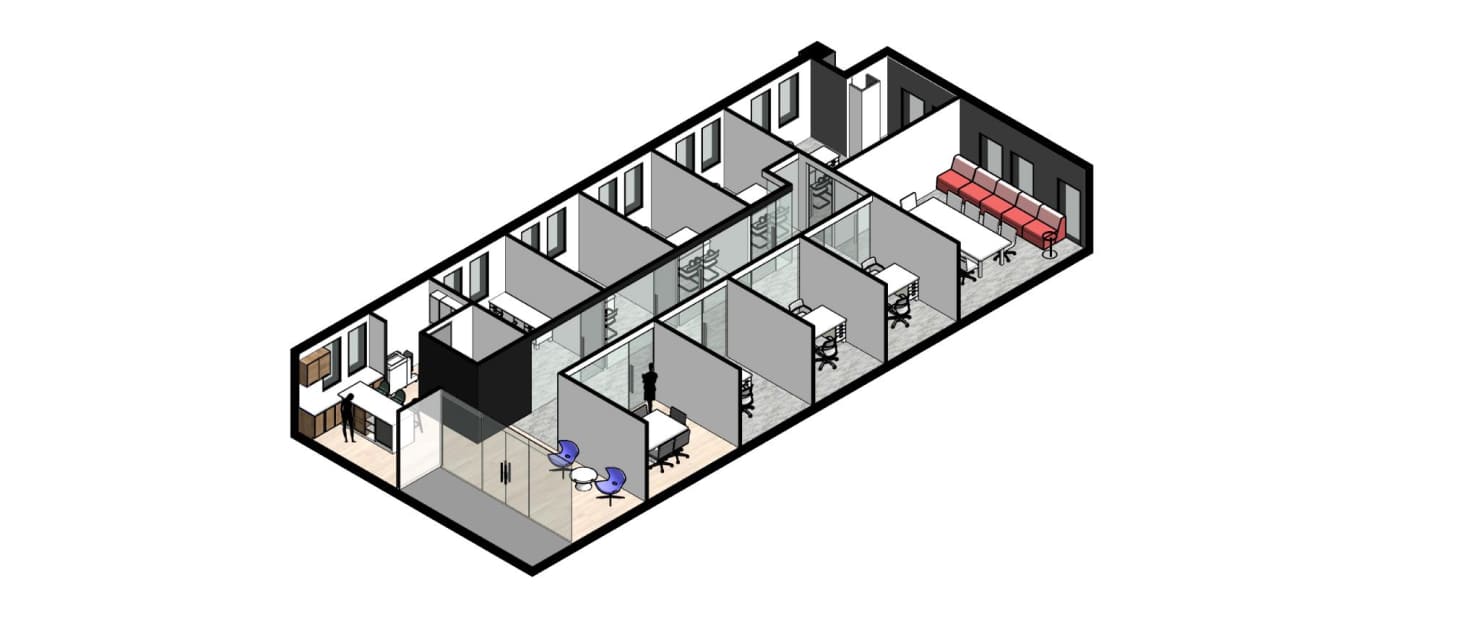
Presenting all the feasible blocking options in the building marketing brochure made it possible for tenant brokers to understand the Z-corridor constraints and which demising wall configuration would meet their build-to suit design requirements. The remaining space was designed as a warm lit shell in preparation for future design and occupancy.
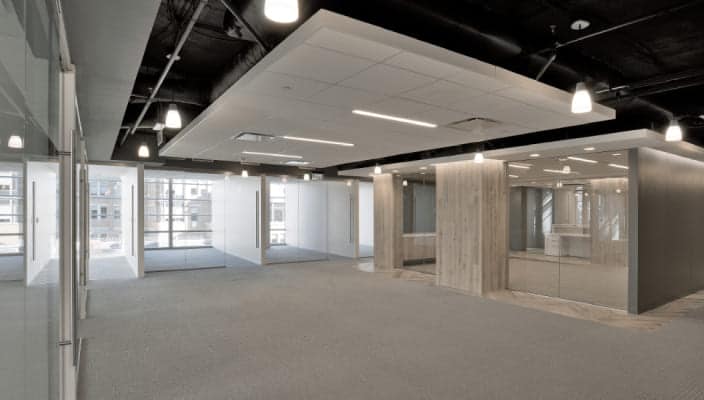
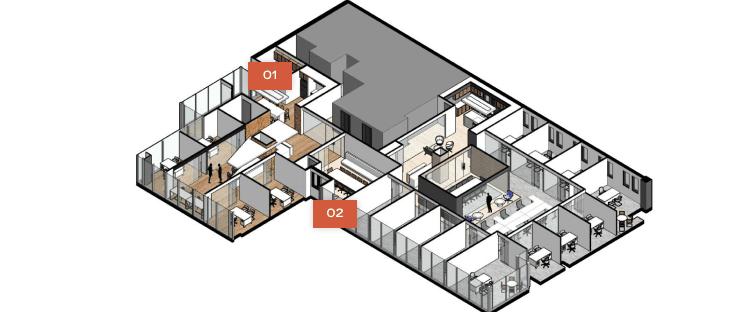
A bar height work surface provides users with a flexible area for individual or collaborative work. The shape of the bar is reflected in the dropped ceiling to visually highlight the unique space.
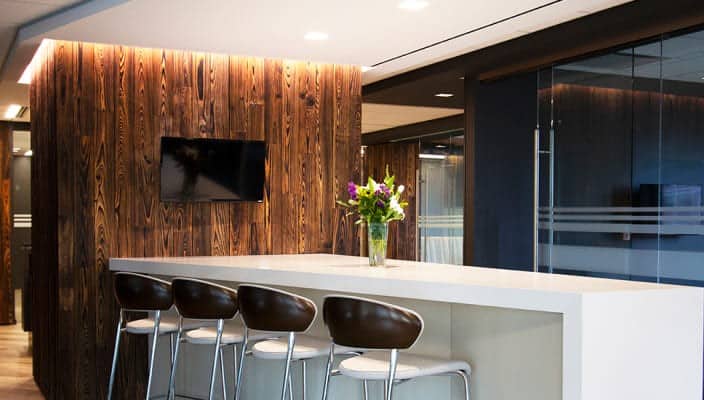
The large conference room gives another opportunity for custom millwork and design elements that reflect the character of the suite.
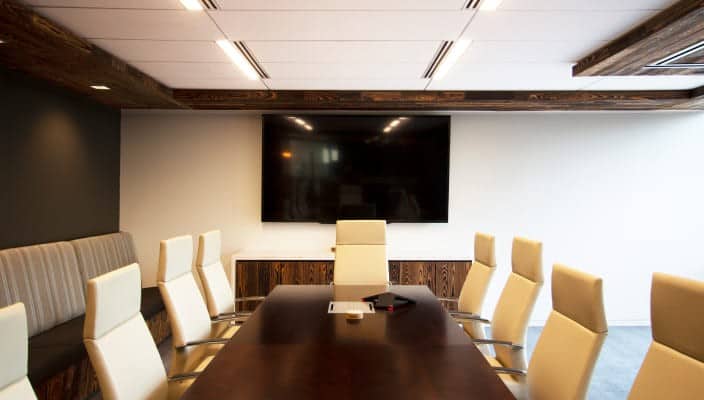
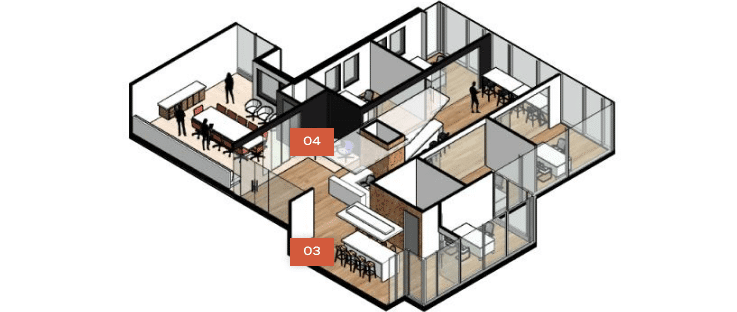
Upon entering the tenant suite, the reception area provides an opportunity for branding and sets the tone for the design as a whole.
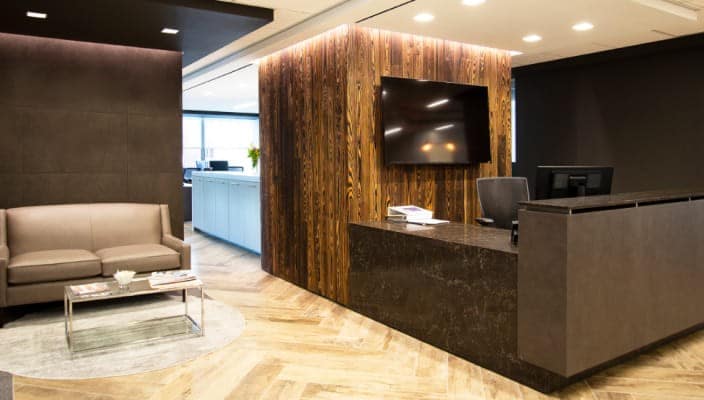
The millwork for each pantry is designed to reflect the needs and aesthetic of this specific tenant.
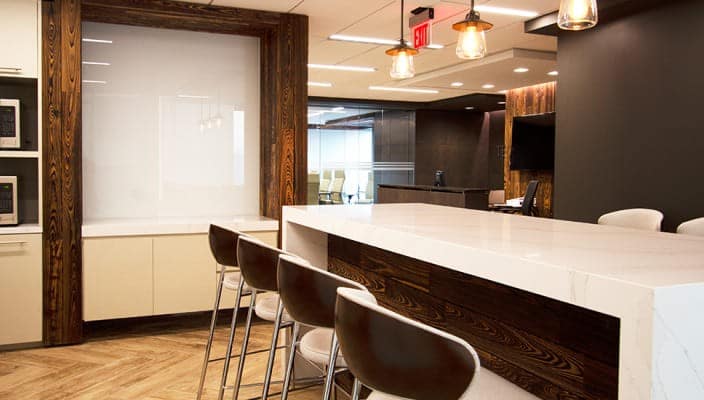
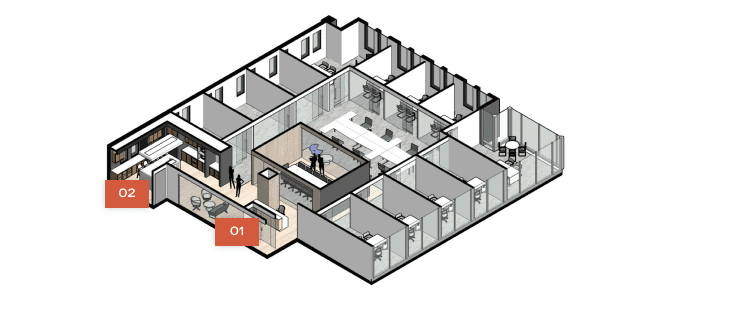
On both the 5th and 7th floor’s the glass walls of the suite entrance allow the suite to maintain a visual connection to the rest of the building. Communal and collaborative areas create physical separation and privacy for the suite’s main work areas.
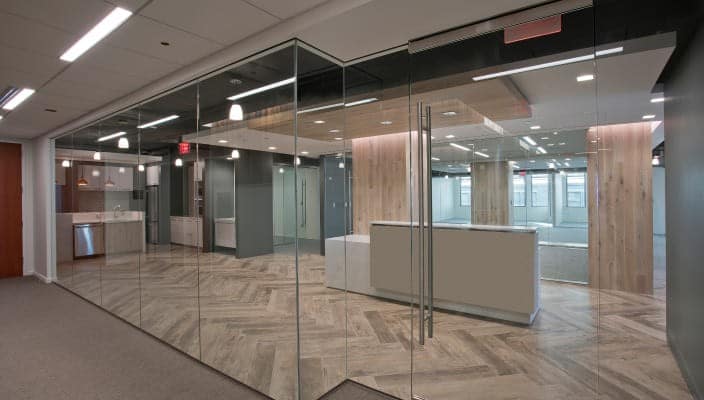
The stacked location of the pantry in each spec suite allows for better coordination of plumbing between the floors. Unique plumbing conditions in the building were addressed with the placement of an island sink as the central feature of the pantry.
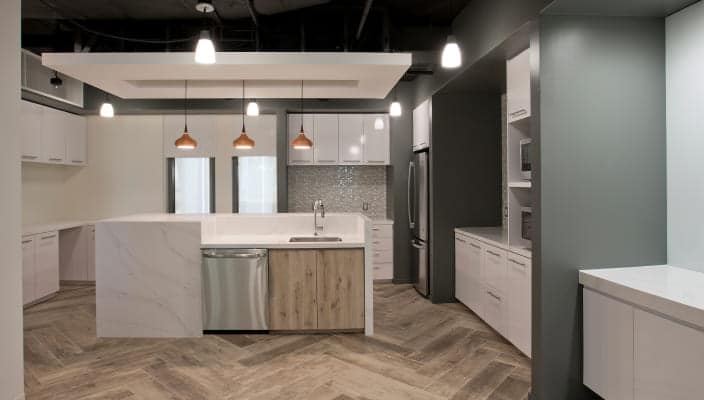
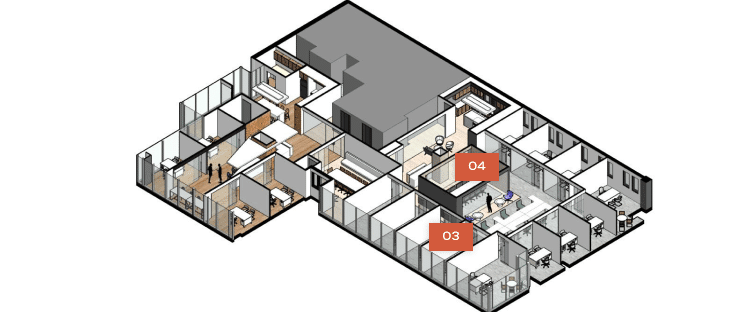
The design of this suite accommodates a potential tenant with the need for a greater quantity of private offices. Daylight is brought into the central work area through the use of glass partitions.
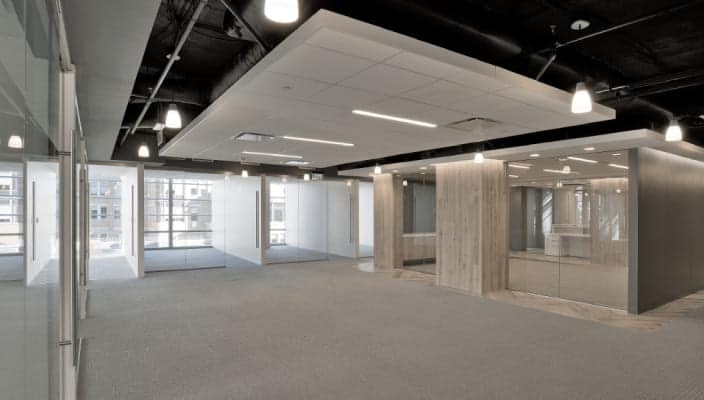
Almost entirely glass on two sides, the central conference room encourages collaboration in a suite consisting of mostly private offices.
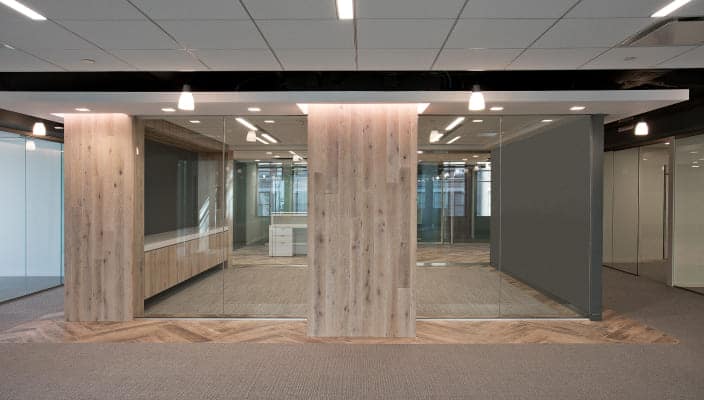
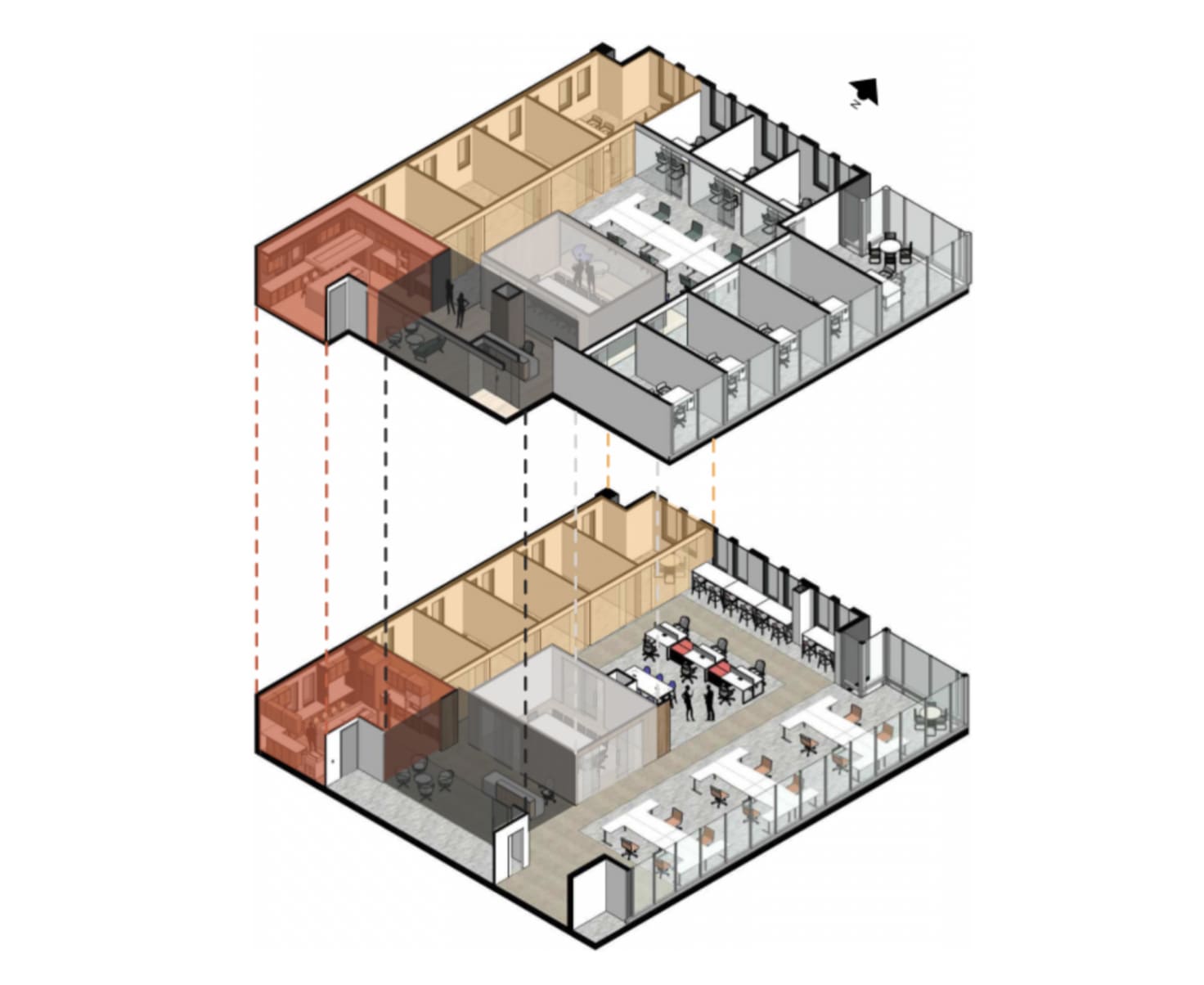
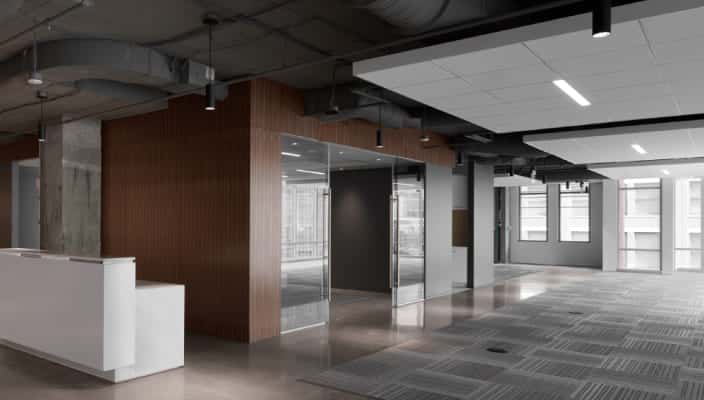
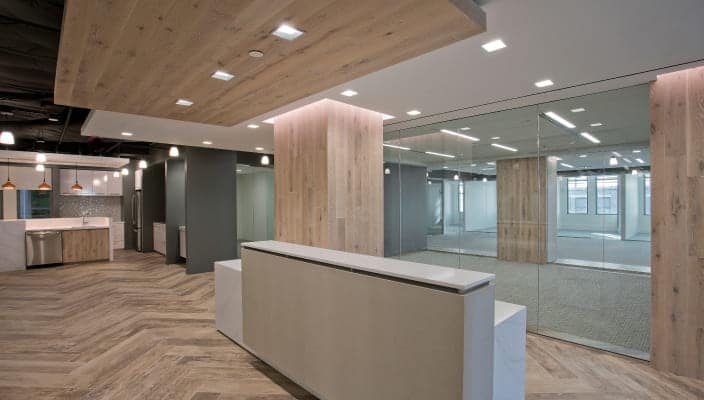
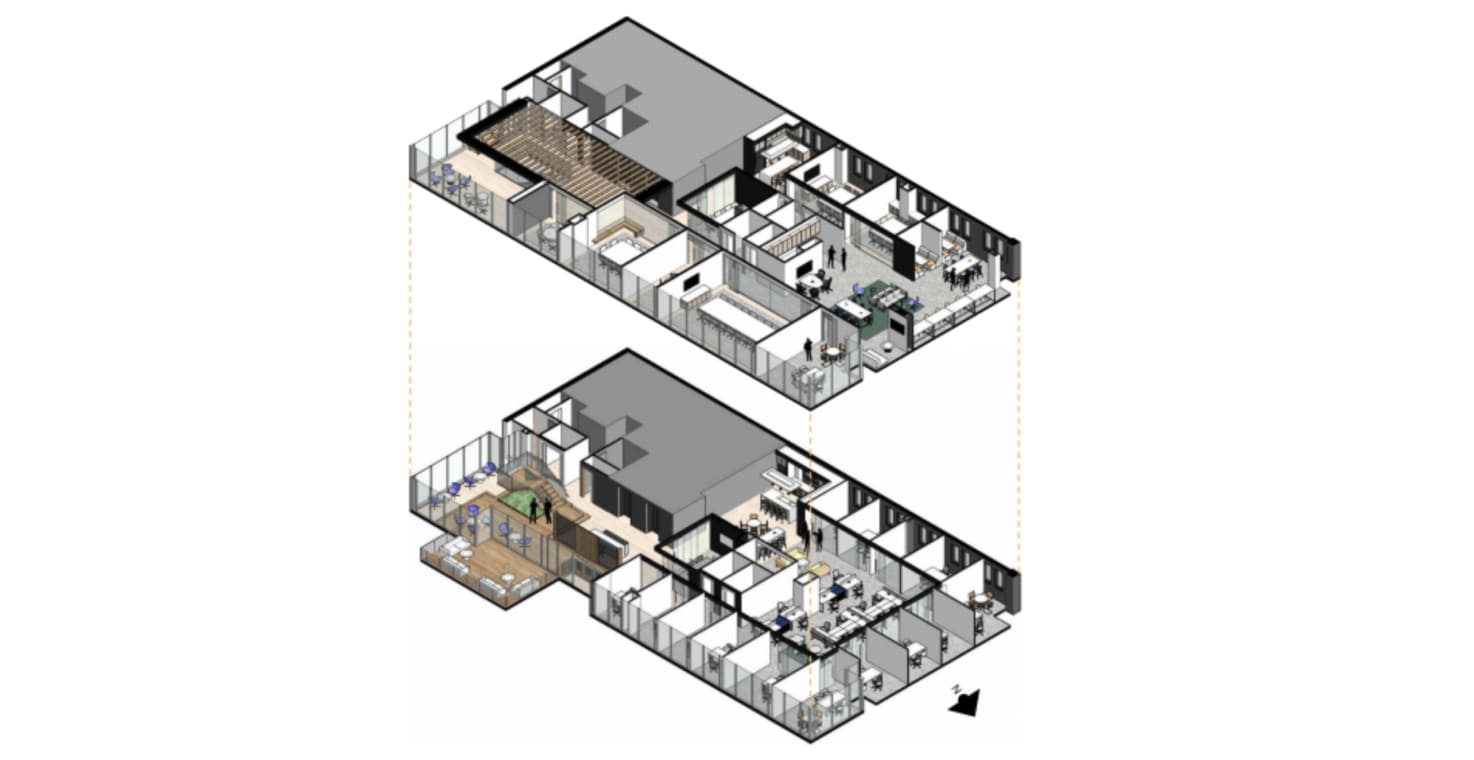
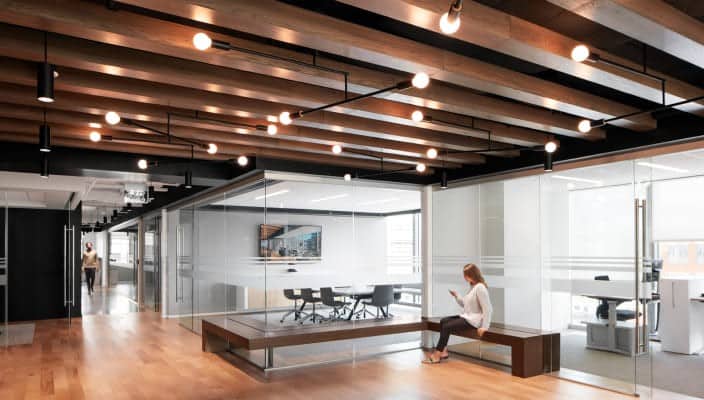
Core to the client’s demands was light-filled, transparent work spaces that still maintained a high level of privacy and separation to allow confidential conversations to happen. Individual offices were essential, given the nature of the client’s work, but employees still want a balance between private work zones and more public amenity spaces that enhance collaboration.
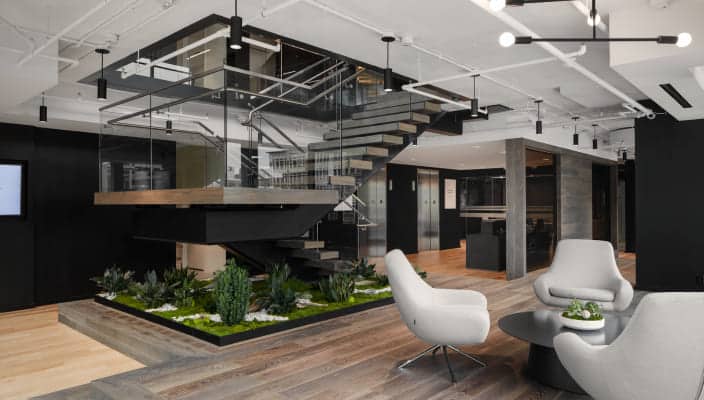
An expansive second floor conference center supports internal business needs while stimulating the visual experience for visitors. The area offers formal conference space that is flexible enough to support both large and small groups, and is supported by a variety of touch down areas for intimate conversations, focus work, and breaks between sessions.
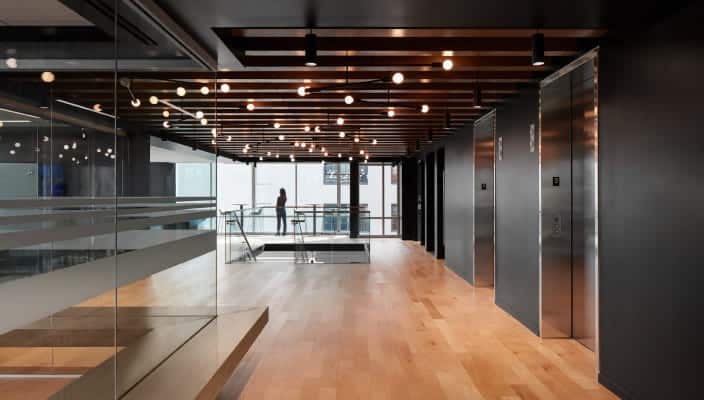
Throughout, the design of this two-story 16,400 sf suite is clean, contemporary and warm—a black, white and natural wood palette maintains a level of sophistication while echoing the west coast charm. Wireless technology, video-conferencing, various sized rooms and flexible furniture allow employees to choose their work environment, collaborate…or find quiet separation. And the diversity of spaces offers flexibility and choice that accommodates both the public and private side of the client’s work.
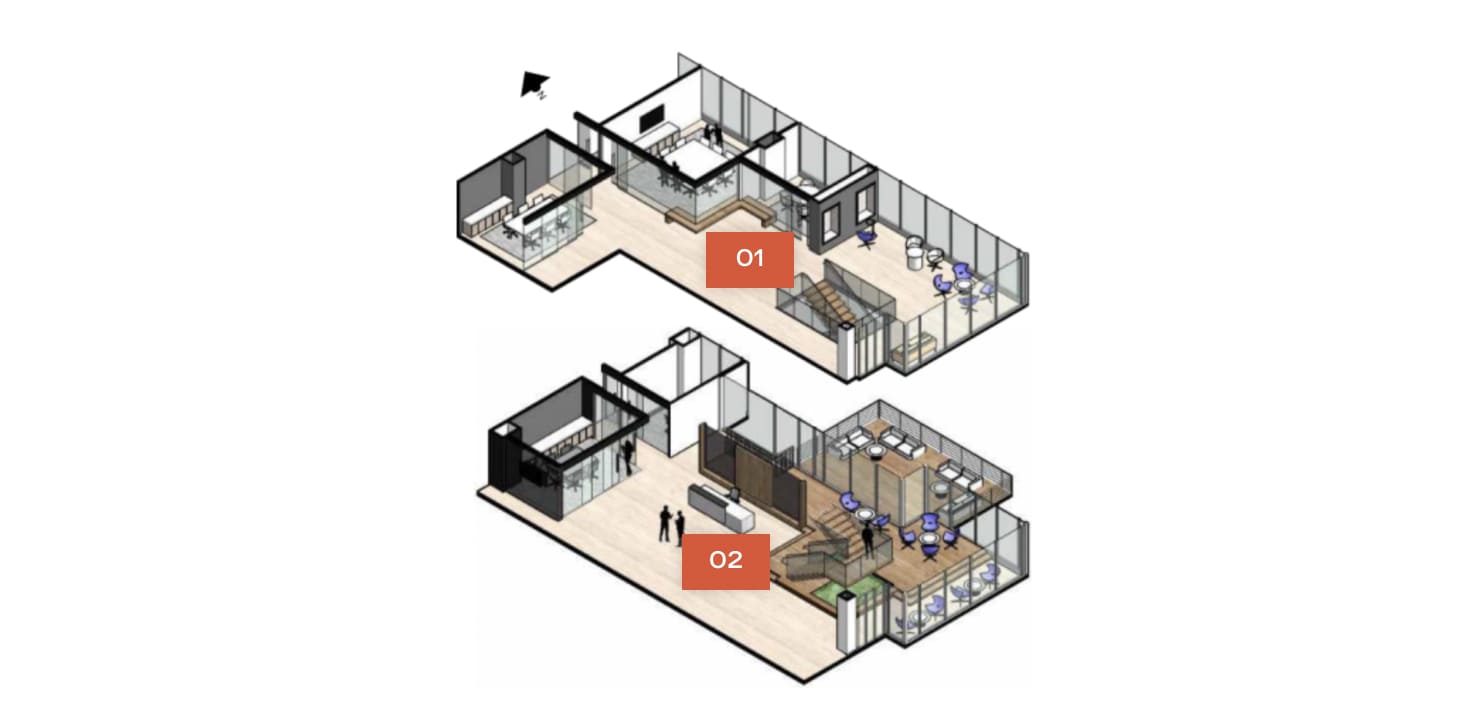
Both floors utilize the stunning corner views of the building and natural light. Soft seating creates a casual space for work or socialization.
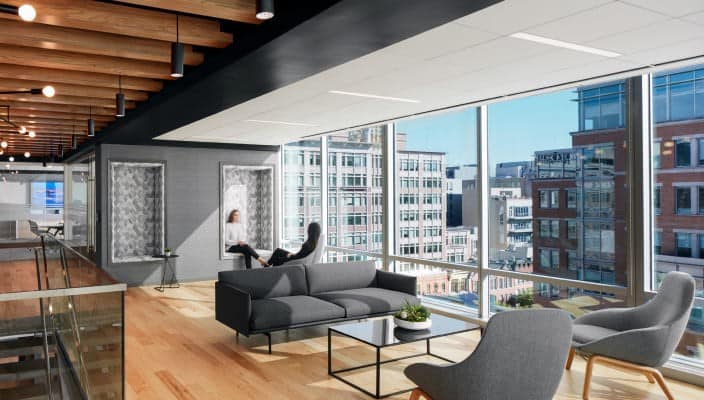
The reception area incorporates biophilic elements to create an inviting atmosphere for users and visitors. The darker wood tones visually enhance the feature stair and encourages connection to the floor above.
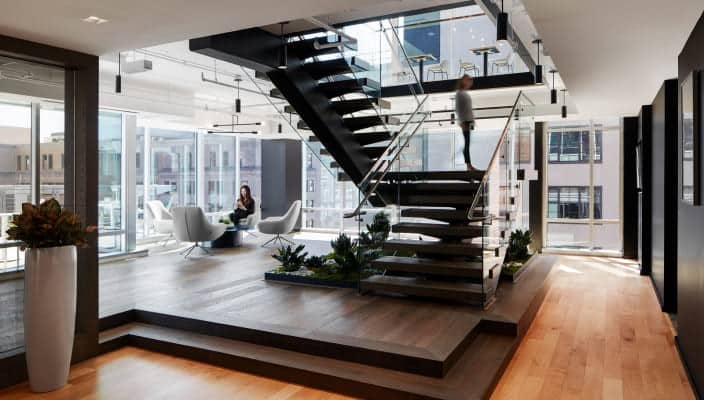
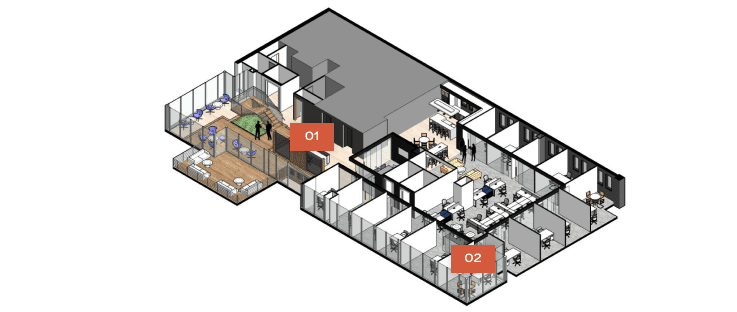
The reception off the elevators allows for immediate branding of the space upon entry. It also acts as the point of connection between the lounge spaces and work spaces.
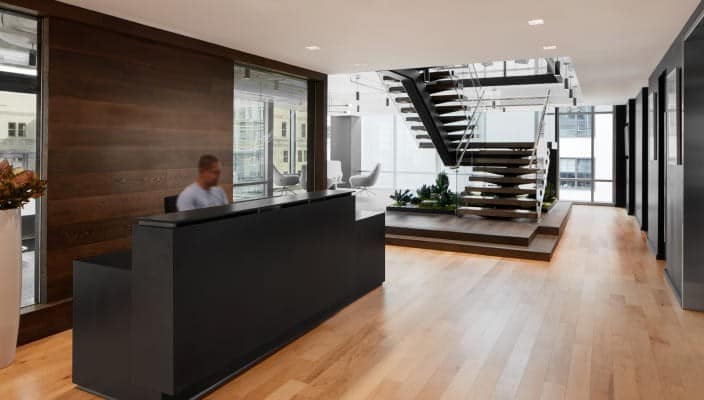
Different size conference rooms throughout the suite allow for meeting flexibility. These rooms range from a formal conference room to a smaller mixed use huddle rooms and phone booths.
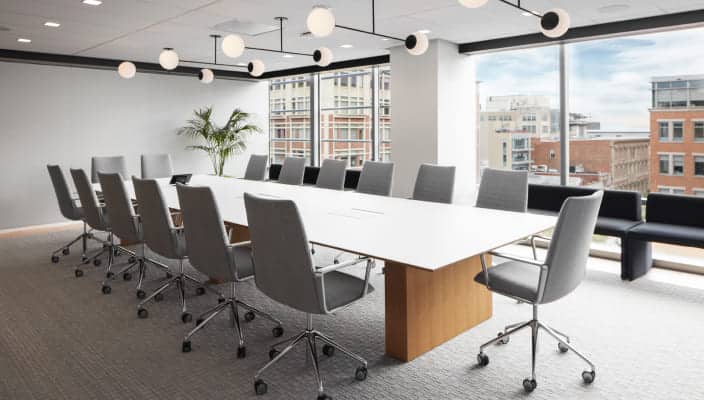
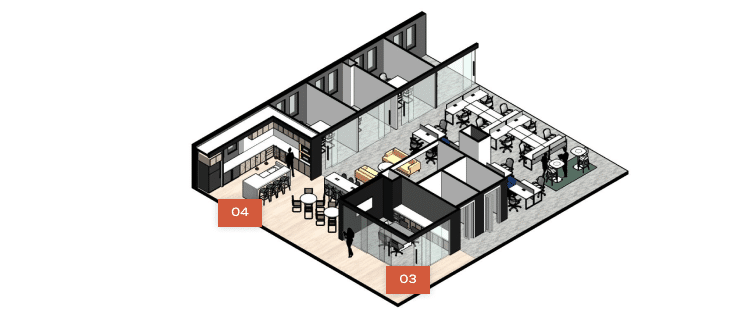
The open pantry, with its warm and bright finishes, encourages social interaction between co-workers.
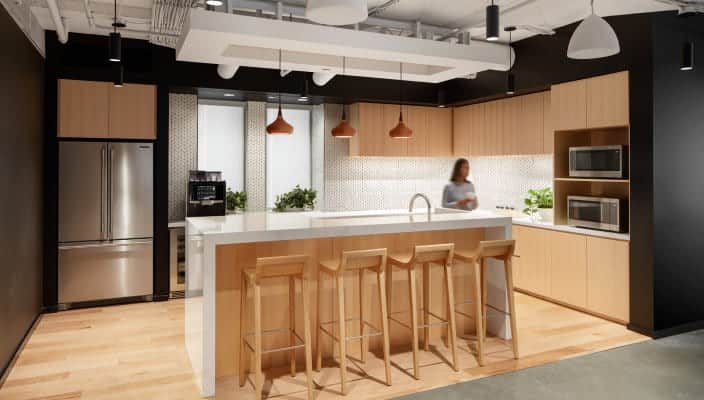
The telescoping glass doors of the central meeting room create a flexible space for focused group collaboration with an open connection to the rest of the suite.
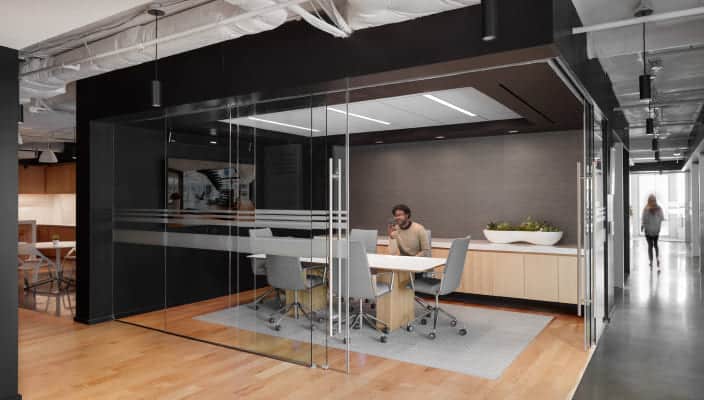
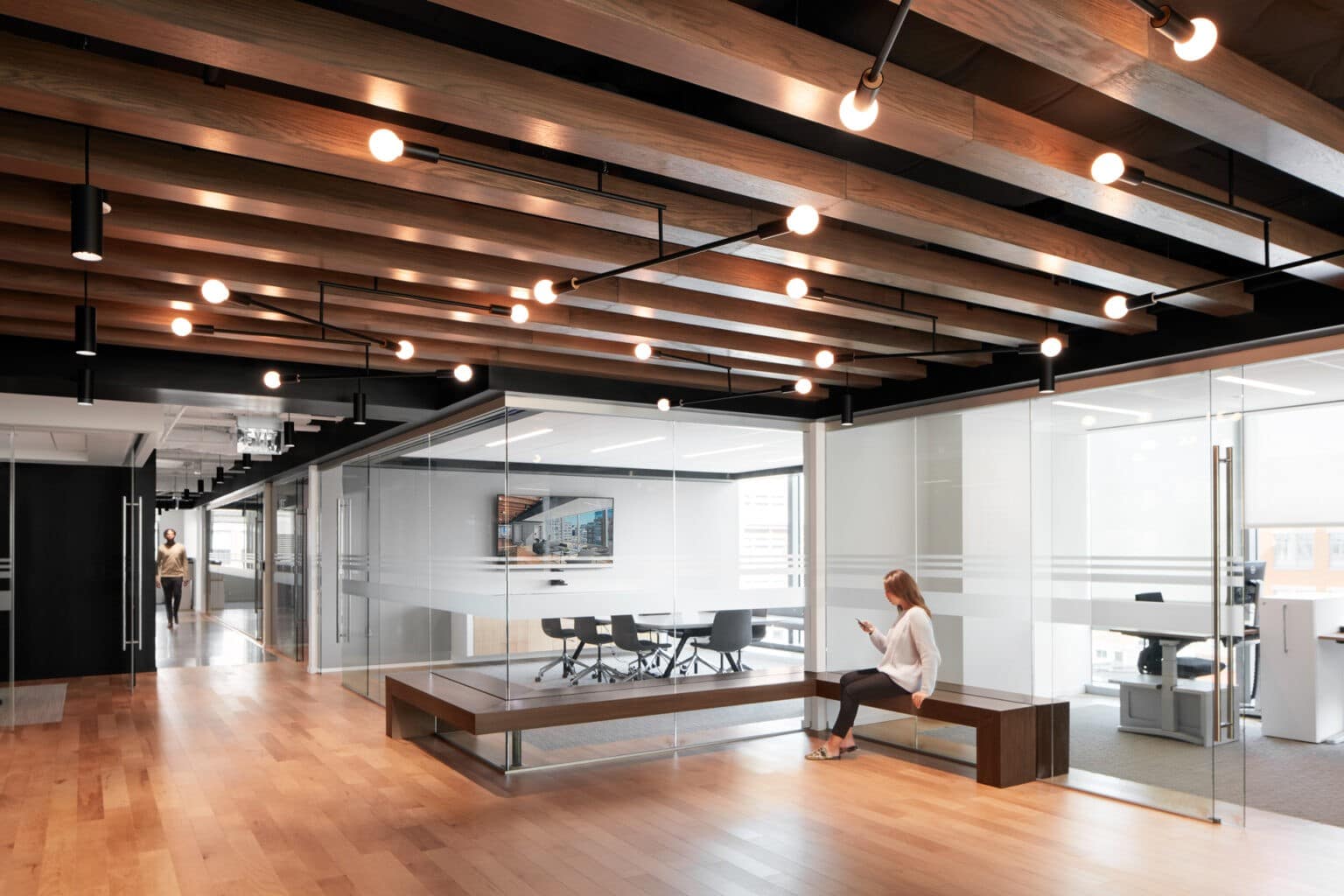
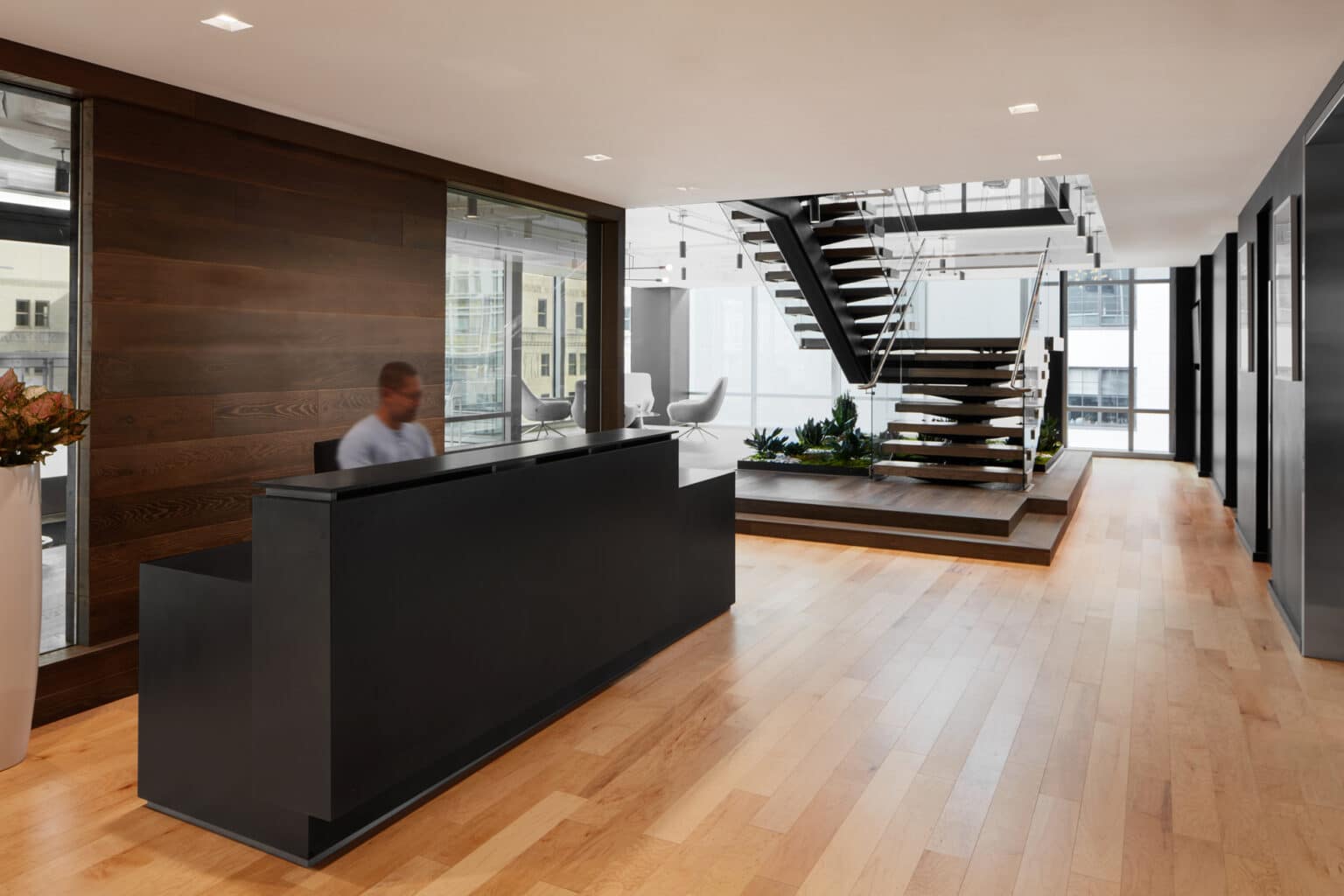
As a part of this expansion of the JUUL Suite the team was tasked with designing a sculptural connecting stair between the office’s 8th and 9th Floors, creating dynamic meeting spaces throughout, and re-imagining of the rooftop space, which could provide both indoor and outdoor experiences to company employees and guests, as well as being ADA accessible.
